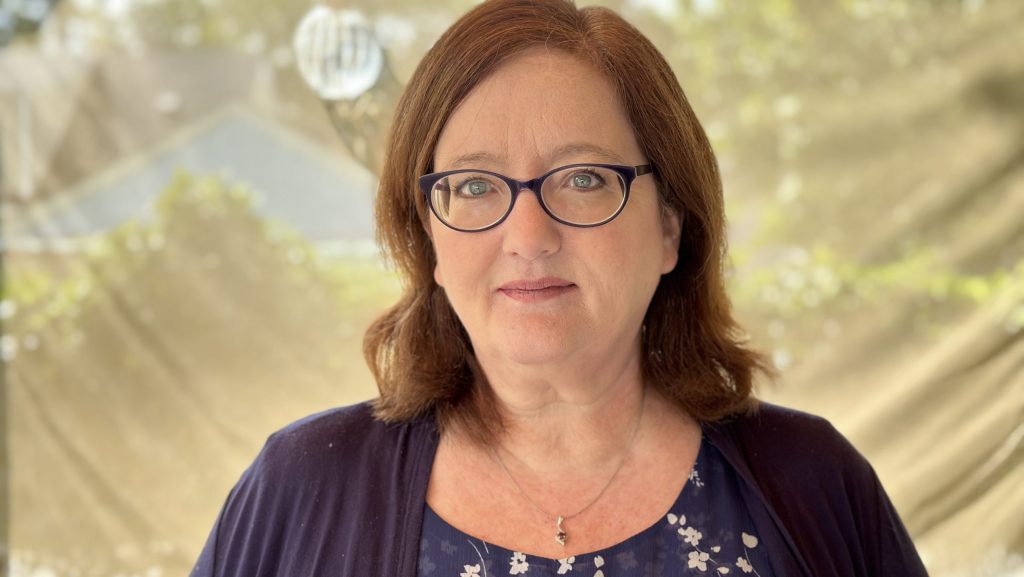‘Just lose weight is terrible advice’: Women advocating for better medical care for people in larger bodies

Posted September 5, 2024 5:28 pm.
Last Updated September 5, 2024 6:35 pm.
For years, Winnipegger Heather Madill has been suffering debilitating pain caused by arthritis in her knees. When she’s gone to specialists in Manitoba for care, she claims she’s been met with professionals telling her to lose weight first — then come back. But she’s at a loss as to how when she relies on painkillers just to get through her day.
Madill’s case is not isolated or new. It has advocates calling it an ongoing problem within the healthcare system.
“I deal with pain on a pretty much daily basis,” said Madill. “It took months to get into a specialist. And then when I finally did see him, he was in the room for maybe 4 minutes and said, ‘You just need to lose weight and see how it goes.’
“It was very dismissive. It was very abrupt. It was very painful to hear because it’s not like it hadn’t occurred to me to try and lose weight. But when you’re dealing with knee injuries, it’s really hard to find ways to move without causing a lot of pain.”

Madill said she’s since seen another specialist and been offered an injection to help with her arthritis. She said it provides her some temporary relief — however only in the sense that she now doesn’t wake up in the middle of the night due to pain.
The ideal solution for Madill is to get her knees replaced, but she said her doctor won’t consider it until she’s lost weight or she turns 65. She said it’s because Manitoba would rather wait rather than replace her knees now and possibly a second time when she gets older.
“(The doctor) said it’s too much of a strain on the medical system. I do remember that because I was like, it’s too bad it’s a strain on their medical system. It means I spend the next 15 years in pain,” she explained.
“I would really like doctors to consider that telling someone that just waiting two years. five years. 15 years. Means that is two years, five years and 15 years where they are struggling to live with pain … That’s a big chunk of someone’s life.”
Winnipeg nurse Emma Cloney, who for years was dismissed by the healthcare system until she finally received a late diagnosis for Lipedema (an illness that causes painful fat buildup and swelling in the arms and legs), says she’s seen fat-bias both as a patient and as a healthcare provider.
“I have witnessed fat-phobia and fat-bias firsthand and the effects that it has on our patients,” Cloney said.
“Despite having gone to doctors for years and years and years expressing that something was wrong. That I was experiencing pain, that I had no ability to lose weight and no justification for why I was gaining weight, I was unable to get answers,” she said. “A lot of the advice that I received at those appointments was really colloquial. Things like, have you tried eating less and moving more?
“That’s just frankly terrible, terrible information to be giving to people. I just wish that our healthcare system would look just a little bit deeper,” said Cloney.
The Winnipeg woman, who is also the vice president for Lipedema Canada, continues advocating for better healthcare for people with Lipedema all over the country.
“Why aren’t we offering actual support before the situation has become debilitating or someone is now not eligible for an operating room if they need surgery. Or where there isn’t any care options left,” she said.
Cloney is calling for healthcare providers of all kinds to stop dismissing patients who present themselves in larger bodies.
“It has to start with curiosity. It cannot simply be that somebody walks in, lives in a large body and we stop the healthcare conversation there at, ‘Well you should lose weight.’ I cannot think of any other healthcare condition where the patient would simply be assigned the task of going home to make themselves well without support or any further diagnostic tests or information.”
She said it would also stop the impact of the psychological trauma that comes when patients are dismissed due to their size.
“If you asked what is the real message that sends when a care provider says, ‘I’m going to dismiss your concerns but just go home and lose weight.’ What that says to the person living that is, ‘My value, my worth as a human isn’t worth treating until I’ve made myself small enough that you think I’m worthy of healthcare.'”

“Demoralizing is a really good word to use,” added Madill. “It feels like you’re a second-class citizen somehow. That if you just tried harder, you’d feel better.
“I hope people like me feel seen and not alone. I hope people that maybe aren’t like think twice before seeing something and judging them.”
Madill said she doesn’t want to live like this for the next 15 years. She wants to be able to enjoy life. To finally book a long-planned trip to Italy with her husband.
“I’m afraid to book this trip. I’m afraid to actually make plans for the future because I don’t know if I’m going to be able to handle it. My biggest fear is going somewhere and not being able to enjoy it because I can’t walk more than a kilometre,” she said.
She’s holding out hope that someone will hear her story and feel less alone. Or for healthcare providers to hear her and implement changes.
The Minister of Health, Seniors and Long-Term Care, Uzoma Asagwara, did not respond when asked for an interview or a statement.
“I think the thing I’m most looking forward to is just walking, holding my husband’s hand, and enjoying a full day without needing painkillers,” said Madill.








